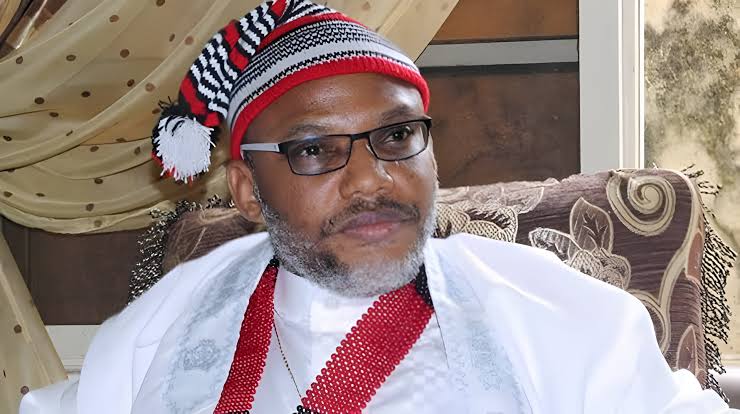
October 20: The Day Nigerians Rose Beyond Fear and Division
By Sochima Mbanali
October 22, 2025
No nation can survive without cohesion. And cohesion cannot be built on empty slogans like “One Nigeria.” If anything, such rhetoric exposes the cracks of a forced unity.
For decades, the Igbo people have been excluded, demonized, and perpetually oppressed. It took time for the rest of Nigeria to recognize this as the truth, just as it took time for the Igbos themselves to fully accept it. Today, that truth is no longer hidden; it stands as an undeniable reality. Acceptance, however, is merely the first step toward salvation.
For Nigerians, accepting this truth brings clarity: the Igbos are not the problem. They are not the agitators or the troublemakers as history books and propaganda have long portrayed them to be. They are the victims, blamed for their own suffering, vilified for demanding justice, punished for daring to hope, and misunderstood for their pursuit of freedom.
One of the most significant and haunting dates in Nigeria’s modern history is October 20, the day of the Lekki Massacre, a dark moment when the nation turned its guns on its own future. It is therefore deeply symbolic that on this very date, in 2025, Nigerians rise again, this time in one voice, to demand the freedom of Mazi Nnamdi Kanu.
This is a symbolic acceptance that Mazi Nnamdi Kanu is a son of truth, and that just as the Igbos are not to blame for their misfortunes, Nigerians themselves are not the architects of the nation’s decay. Some argue that the people should be blamed because the leaders come from among them, but that is a hollow argument. The real problem lies in the system that imposes corrupt and disconnected rulers upon the people.
The system has long been rigged by colonial hangovers, military manipulation, and imperial interference, ensuring that only those loyal to corruption rise to power. The complicit one’s are few, the so-called elites and their foolishness cannot be used to characterize others. Left to ordinary Nigerians, the nation could heal itself within four years.
The only true fault of Nigerians lies not in complicity, but in fear, the deep, inherited hesitation to seize the power that rightfully belongs to them. That fear did not begin today. It was passed down through generations; from grandparents who were slaughtered for resisting colonial rule, to parents who fought and died believing in a false promise of unity, and now to a generation raised under the same shadow. Today’s Nigerians may have more tools for resistance; information, technology, and global solidarity, yet they battle something far greater: a psychological conditioning more suffocating than chains.
And yet, on October 20, something extraordinary happened. Nigerians rose above decades of mental bondage of fear and division. They transcended ethnicity, religion, and region, and for the first time in a long while, they spoke with one voice.
They demanded that democracy be more than an empty word. Their demand was not selfish; it was for justice. Not for themselves, but for Nnamdi Kanu, a prisoner of conscience abducted from Kenya under the absurd allegation that he sought to “destroy Nigeria”, one of the country’s most shameful acts.
But if that accusation that he sought to destroy Nigeria held truth, why then did Nigerians from all corners of the country unite in calling for his freedom? The answer is simple: Nnamdi Kanu is not destroying Nigeria, the politicians are. They have done so through greed, corruption, and an unrelenting disregard for the rule of law. They have done what no freedom fighter could ever do, they have broken the soul of the country.
On that day, Nigerians reminded the world that dissent is not treason; it is the heartbeat of democracy. And in doing so, they taught those who govern them, the so-called leaders imposed upon them by imperial interests, what democracy truly means.
Their cry echoed across the nation like a song of awakening, tearing through the fog of deception that has long clouded the conscience of the land. A reminder that the people still possess a collective conscience, however buried beneath years of fear and manipulation. Those who fail to grasp the weight of that moment must look again.
The message is clear: Nnamdi Kanu is not merely an individual, he has metamorphosed into an idea, a symbol of the courage to question, a reflection of the people’s yearning to be heard, to be free, to choose their destiny. And on October 20, the people of Nigeria showed that they, too, share in that love for justice, for truth, and for the freedom to choose their destiny.
And, the more they hold Mazi Nnamdi Kanu, the more the idea grows. They cannot stop it now, they have watered the seed of enlightenment, they have unleashed the beast they themselves cannot control. The only solution remains to Free Nnamdi Kanu, and Conduct a referendum. Let the people be heard. Let the principles of democracy be upheld for once in Nigeria.